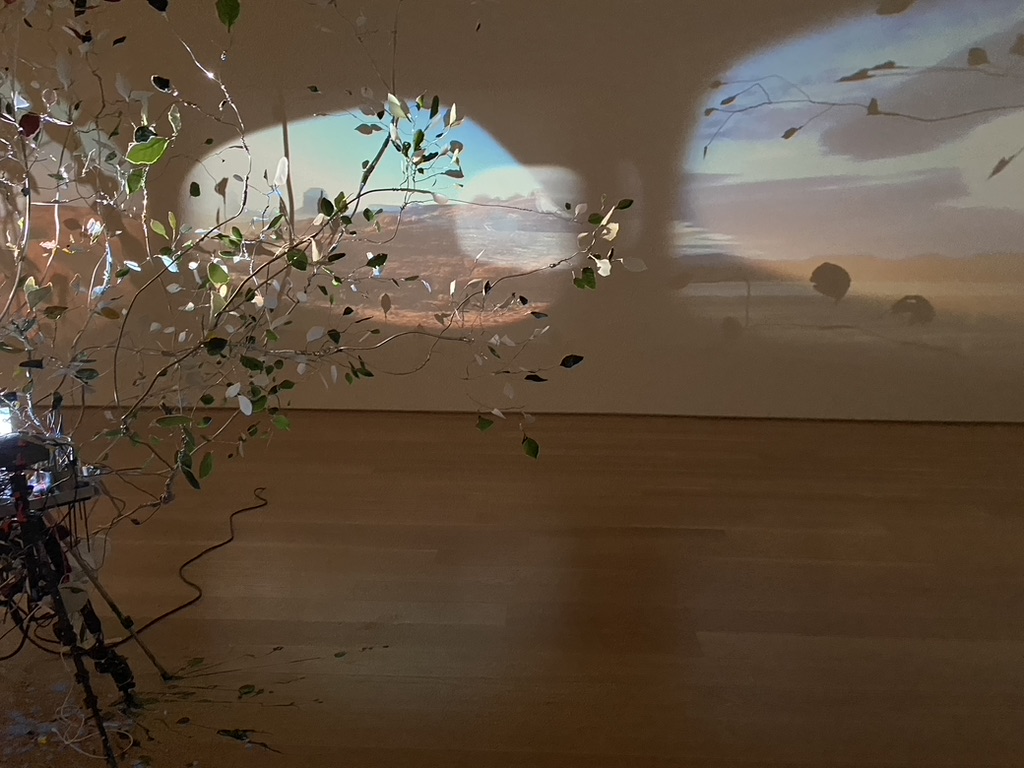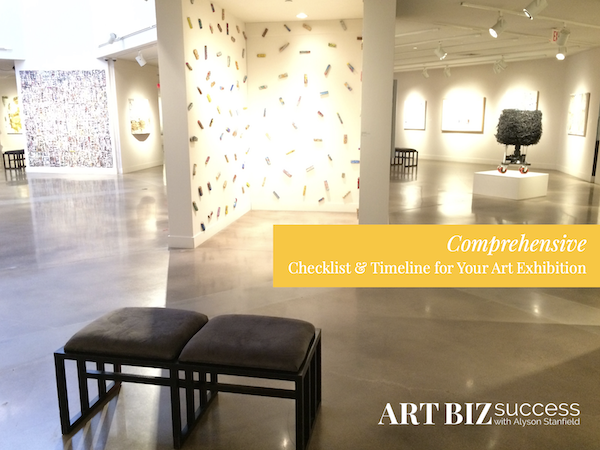As I wrote last week, you have responsibilities for your art exhibition. Now, let’s talk about the venue’s responsibilities for your exhibition.
Business arrangements will depend on the type of venue.
- Commercial galleries are set up one way.
- Museums have a non-commercial relationship with the artist.
- Co-ops operate within the confines of their member agreements.
- Art centers will have their own unique missions.

And many spaces—especially non-art venues —leave everything up to the artist.
There’s nothing wrong with showing art at non-art venues like restaurants, libraries, and bank lobbies. I encourage you to do that.
But the list I share here won’t apply to non-art venues. What you can expect from a non-art space is anyone’s guess! They might have a devoted staff person that knows the ropes or you might be on your own to figure everything out.
Here’s what you should expect from any art venue.
Traditional Art Spaces Should
Sign a contract in timely fashion. If they don’t have such an agreement, it’s up to you to make one up and get a signature.
Don’t ever leave your art anywhere, let alone agree to an entire show, without a signed piece of paper.
Provide proper art handling. If someone besides you is doing the uncrating, installation, and packing, you should be assured that they have adequate training to do the work.
Promote the event on a blog, website, and through social media. If they have their own mailing list, they should be expected to use it for your exhibition as well.
Support you through any events. Regardless of whether the venue is hosting and paying for an event, it should still be supportive of whatever you schedule. If the venue’s staff are invited to the event, they should be delightful to all of the guests and be helpful to you in any way possible.
Maintain a clean, friendly environment. You’re encouraging people to visit their space. The least they can do is sweep the floors, clean the bathroom, and greet visitors.
Ensure security. The extent to which works are insured will, again, depend on the venue. But you should expect that doors are locked, artwork is hung securely, and every precaution is taken to prevent damage or theft.
Notify you of sales. You should be notified promptly when one of your pieces sells – especially if that work needs to be replaced within the space. Not all venues will be able to share the contact information of buyers with you due to their own privacy policies, but they should have notification in place.
Pay you on time. Payment terms should be outlined in any contract. Whenever you’re notified of a sale, mark the payment due date on your calendar and start following up with the venue if it’s not received on time.
[ Make sure you read about your responsibilities to the venue and show. ]
Related Episodes of The Art Biz
These episodes have exhibition venues as a primary topic.







